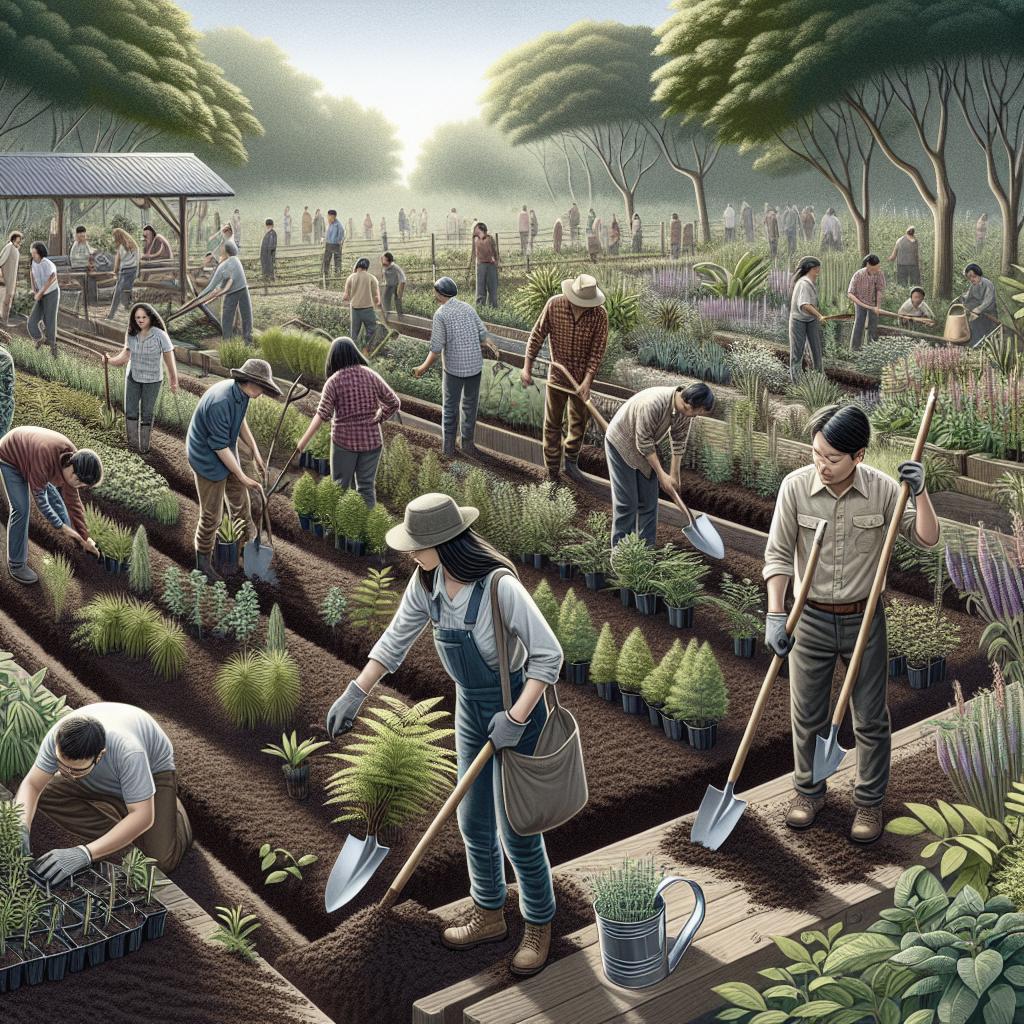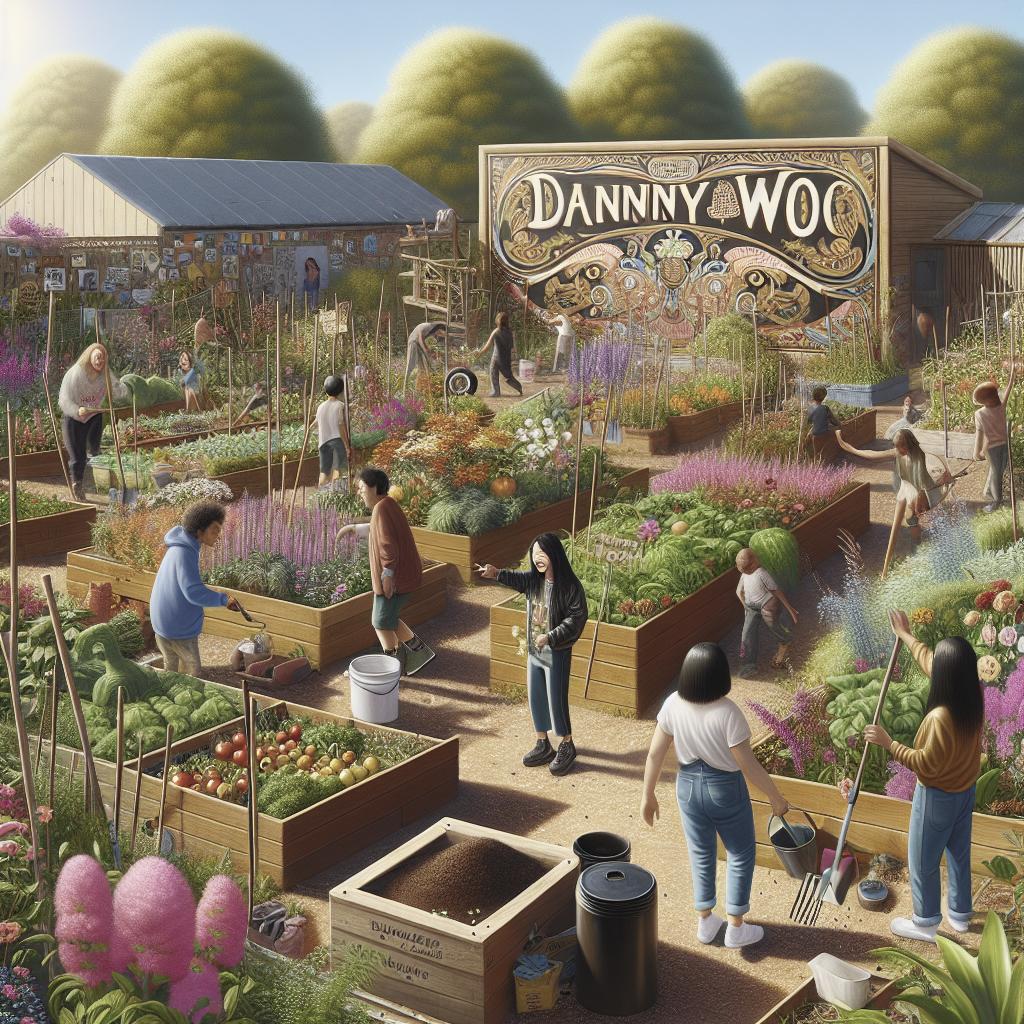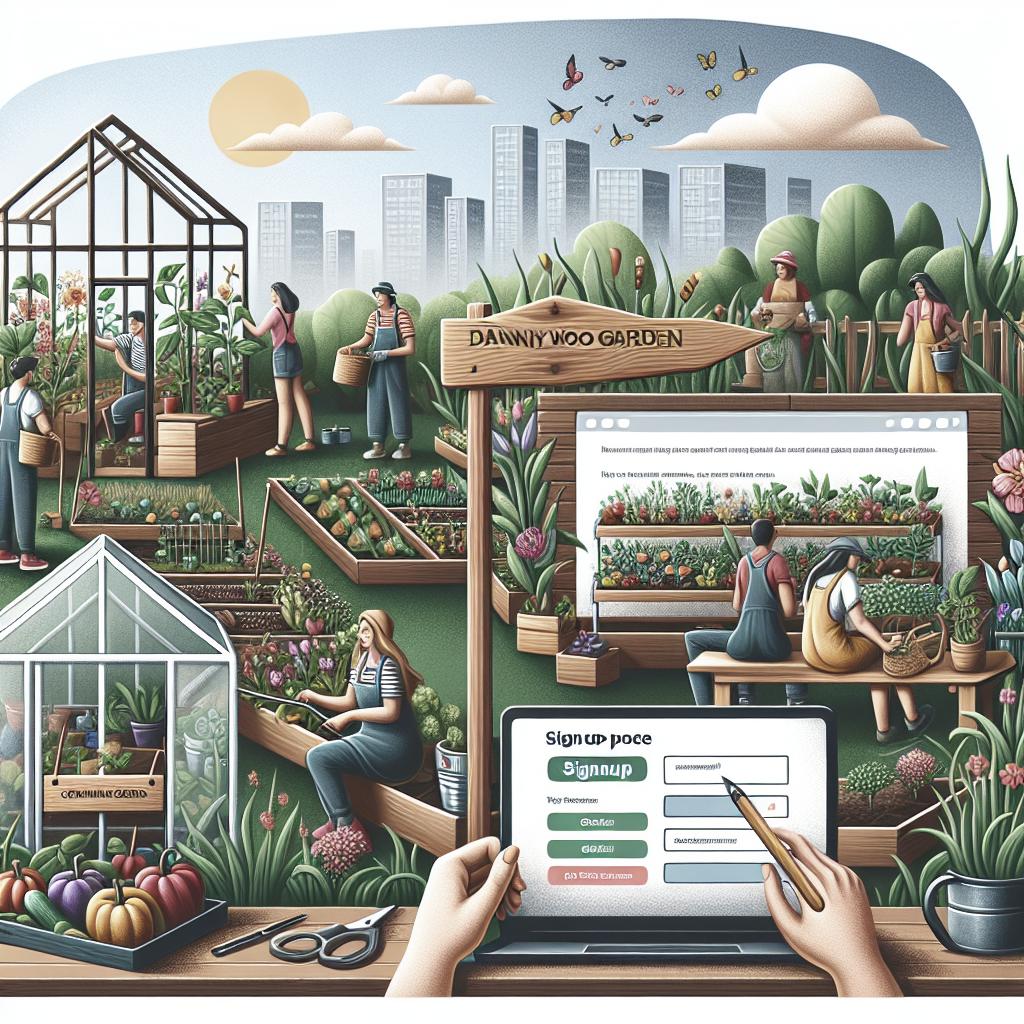“`html
Introduction
With the urban fabric of Seattle continuously evolving, green spaces like the Danny Woo Garden serve as vital oases of biodiversity and community engagement. This blog post delves into the rich history and unique aspects of the Danny Woo Garden, emphasizing the importance of planting native species. Discover our story, learn about the vibrant community of volunteers, and explore the array of native plants that thrive within this hidden haven. From the bustling backdrop of Interstate 5 to the tranquil plots brimming with life, let’s journey through this extraordinary community effort that champions ecological sustainability and communal resilience.
Our Story
Tucked behind a row of tall trees up against Seattle’s busy Interstate 5, it is easy to miss. This community garden is anything but ordinary.
Nestled in the heart of Seattle’s historic Chinatown-International District, the Danny Woo Community Garden spans 1.5 acres of fertile land. Founded in 1975, the garden was named after the late Danny Woo, a prominent local business owner and community leader who envisioned a green space for residents to cultivate and connect. The garden stands as a testament to what communal effort and a shared vision can accomplish, turning a once-neglected piece of land into a thriving ecosystem.
Over the years, the garden has become a sanctuary for local residents, many of whom are elderly and from immigrant backgrounds. The plots are meticulously maintained, showcasing an impressive variety of vegetables, fruits, and herbs. However, what sets Danny Woo Garden apart is its commitment to planting native species, a strategy that promotes local biodiversity and sustainability. This focus not only benefits the environment but also provides gardeners with a tangible connection to the region’s natural heritage.
Danny Woo Garden
The garden operates under the auspices of the InterIm Community Development Association (ICDA), a non-profit organization dedicated to revitalizing the International District and supporting its residents. The ICDA provides resources, educational programs, and a sense of community for the gardeners, most of whom are low-income seniors. Through the garden, participants engage in physical activity, maintain social connections, and foster a sense of belonging.
The emphasis on planting native species is a strategic choice that aligns with the garden’s mission to promote environmental stewardship. Native plants are naturally adapted to the local climate and soil conditions, making them more resilient to pests and diseases. This reduces the need for chemical interventions and supports local wildlife, including pollinators like bees and butterflies which are crucial for ecosystem health. By planting native species, the Danny Woo Garden not only nurtures the land but also educates the community about the importance of biodiversity.
VOLUNTEER
At the heart of Danny Woo Garden’s success are its dedicated volunteers. From corporate groups to individual community members, volunteers provide invaluable support in various ways. Tasks include planting, weeding, harvesting, and general maintenance, ensuring the garden remains a flourishing space for all. The volunteer program is well-structured, offering both regular schedules and one-time opportunities to accommodate different levels of commitment.
Volunteering at Danny Woo Garden is more than just a means of keeping the garden in top condition; it is an enriching experience that fosters community and personal growth. Volunteers learn about sustainable gardening practices, the benefits of native plants, and the history of the Chinatown-International District. More importantly, they build relationships with one another and the residents they serve, creating a dynamic network of support and solidarity.
Lessons Learned
The Danny Woo Community Garden stands as an inspiring example of how urban spaces can be transformed through collective effort and ecological mindfulness. By focusing on planting native species, the garden promotes sustainability and biodiversity, offering essential lessons in environmental stewardship. The involvement of a diverse volunteer base enriches the community, making the garden a true haven within the bustling cityscape.
| Section | Summary |
|---|---|
| Our Story | Explores the history and significance of Danny Woo Garden in the Chinatown-International District. |
| Danny Woo Garden | Details the garden’s management by InterIm CDA and the importance of planting native species. |
| VOLUNTEER | Highlights the role of volunteers in maintaining the garden and the benefits of their involvement. |
| Lessons Learned | Summarizes the key takeaways about community engagement and environmental sustainability. |
“` Feel free to include more details or adjust the content to better suit your audience and style. Happy blogging!


